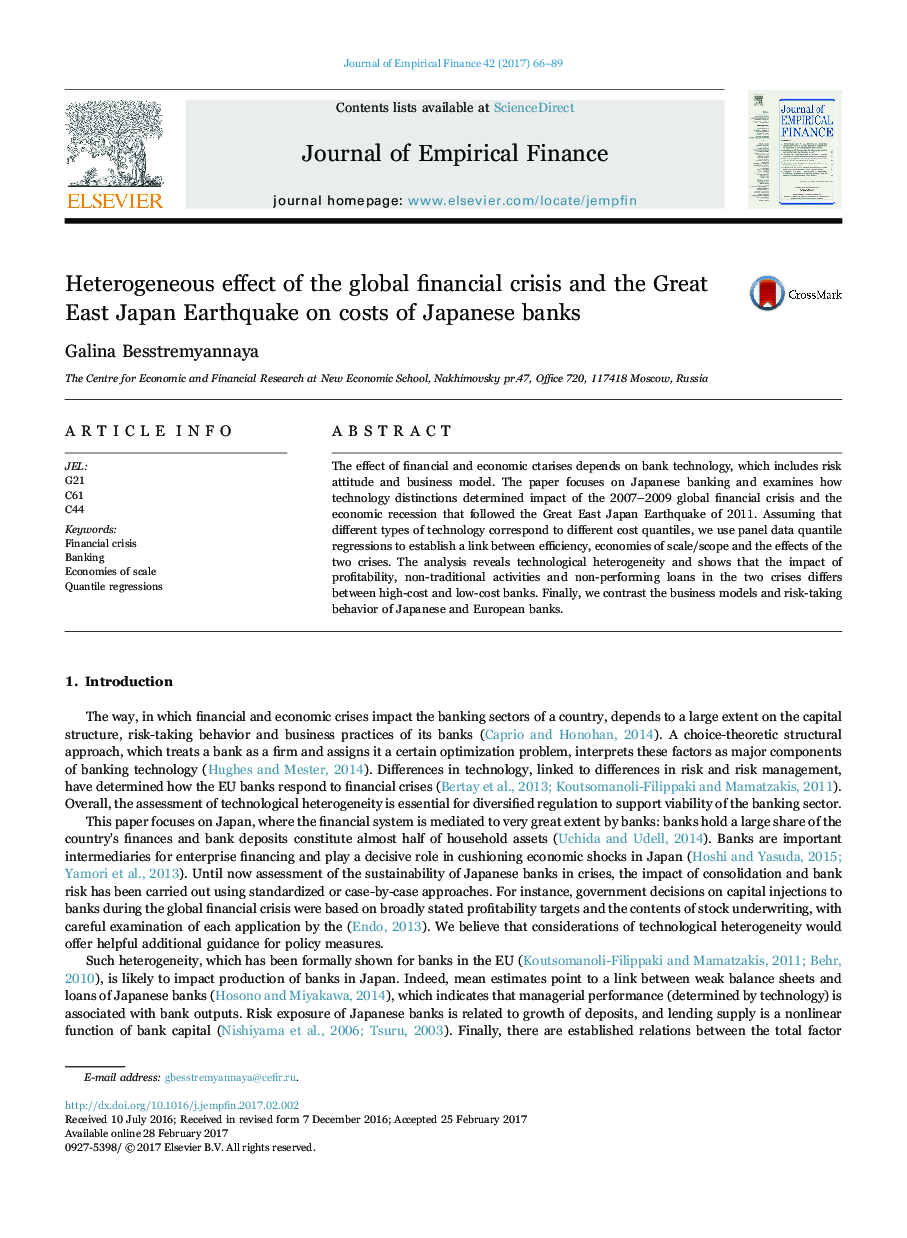| Article ID | Journal | Published Year | Pages | File Type |
|---|---|---|---|---|
| 5100277 | Journal of Empirical Finance | 2017 | 24 Pages |
Abstract
The effect of financial and economic ctarises depends on bank technology, which includes risk attitude and business model. The paper focuses on Japanese banking and examines how technology distinctions determined impact of the 2007-2009 global financial crisis and the economic recession that followed the Great East Japan Earthquake of 2011. Assuming that different types of technology correspond to different cost quantiles, we use panel data quantile regressions to establish a link between efficiency, economies of scale/scope and the effects of the two crises. The analysis reveals technological heterogeneity and shows that the impact of profitability, non-traditional activities and non-performing loans in the two crises differs between high-cost and low-cost banks. Finally, we contrast the business models and risk-taking behavior of Japanese and European banks.
Related Topics
Social Sciences and Humanities
Economics, Econometrics and Finance
Economics and Econometrics
Authors
Galina Besstremyannaya,
